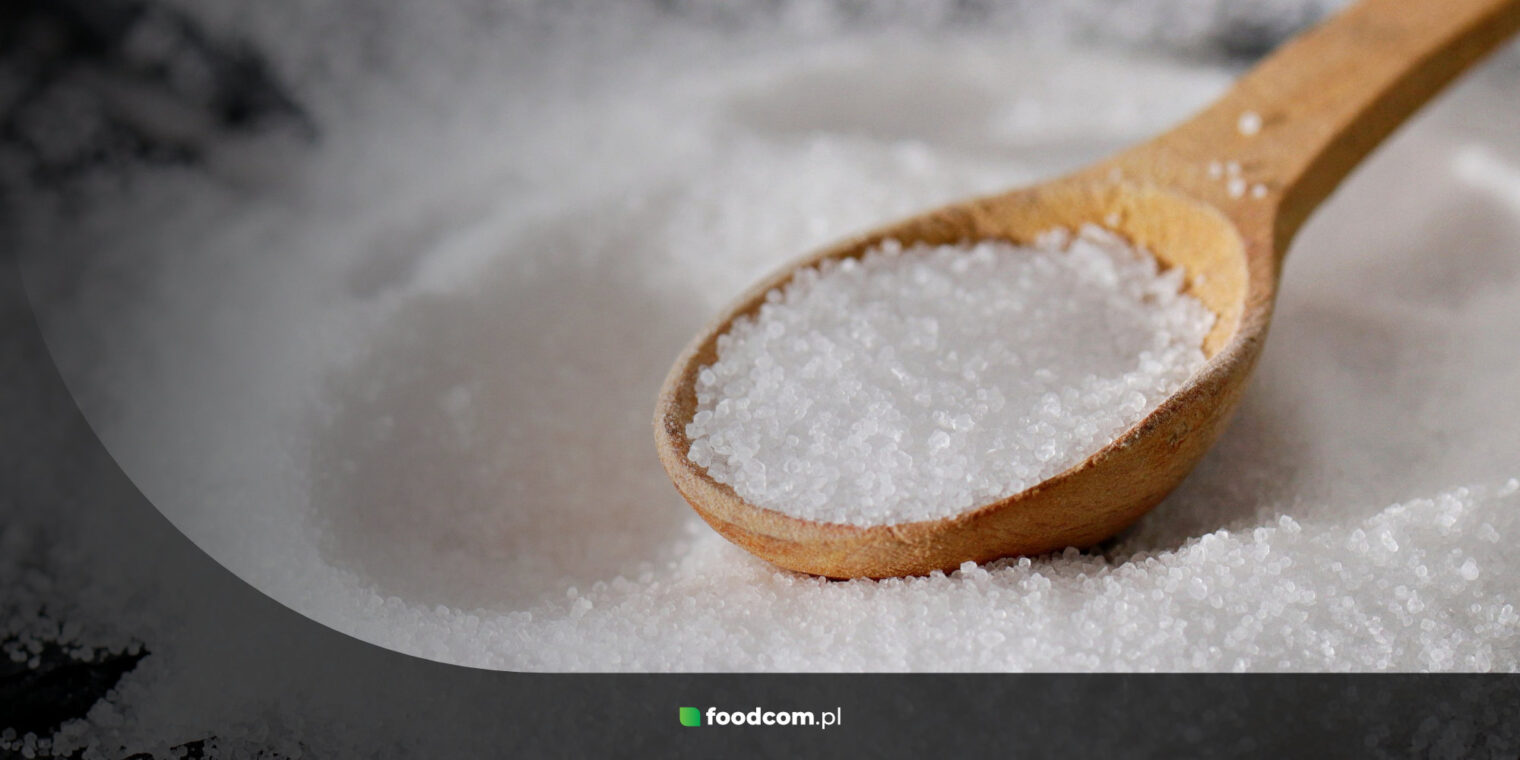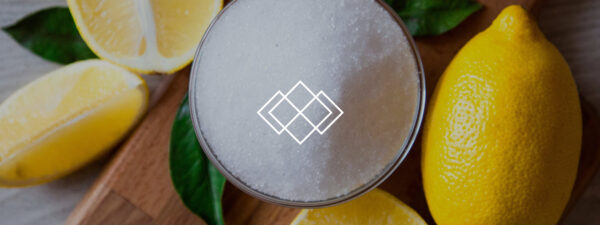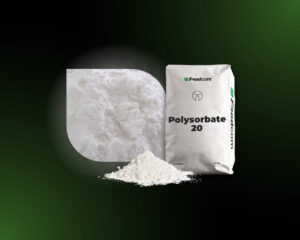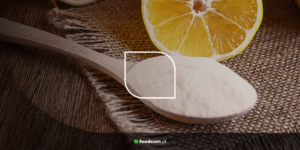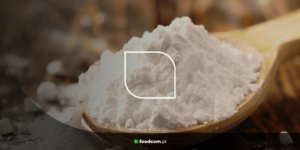- Lactic Acid, Polysorbate 20, Sodium Benzoate, Citric Acid and potassium sorbate are versatile additives used in different industries.
- Citric Acid is an acidulant, while Potassium sorbate, Sodium benzoate are preservatives and Polysorbate 20 is a surfactant and emulsifier.
- They are used in food, animal feed, pharmaceuticals, and cosmetics.
The answer is simple – they are versatile. Various uses in different industries make them a great choice for business, considering the needs of manufactures are changing all the time. The same goes for other additives like citric acid and potassium sorbate. Even if you are planning to produce natural cosmetics, ingredients listed below are approved by cosmetic certification organizations and can be of plant origin. Discover in detail how you can use each of the listed additives in your business production and what benefits do they offer.
Lactic Acid
Lactic acid is an organic acid that has many applications in the food and pharmaceutical sectors, especially in anti-freeze products, biocides, and modeling clay. Most commonly though, it is used in the cosmetic industry. Lactic acid is popular for two main reasons: it can bring about real changes in the skin when used regularly, and it is one of the gentler hydroxy acids used in skin care. It removes old, dull cells on the surface of the skin by breaking down the bonds that hold them together, this process is exfoliation. Additionally, it speeds up cell turnover and stimulates their renewal. This provides smooth, even, and firm skin, and prevents the formation of wrinkles and dark spots. The conjugate base of lactic acid is called lactate. When it comes to technical properties, the production includes natural or artificial sources, and it is easily soluble in water, alcohol, and propylene glycol. Lactic acid is also listed as an approved food additive, numbered as E270.
Citric Acid
Citric Acid is commonly available in powdered or granulated form, in dehydrated or liquid form. It naturally occurs in citrus fruit, but can also be manufactured. Industrial citric acid is produced mainly through fermentation or by chemical reaction. This involves fermentation with the use of enzymes and microbial strains, most commonly of Aspergillus niger. Manufactured citric acid takes up around 90% of all global production.
Citric acids are organic acidulants that have been in the food industry for many years. In animal feed and pet food, organic acids lower the gastrointestinal tract pH. These acids help reduce the acid-sensitive pathogen load. Citric acids can also be added to milk replacers and water to adjust pH and aid digestion, as well as in the process of beer brewing and wine manufacture. In the dairy sector, citric acid is used for cheese production and processing. It supports the stabilization of emulsions and prevents fat separation. The product is used as a dietary supplement and as an ingredient of medications.
Polysorbate 20
Polysorbate 20 is a nonionic surfactant and emulsifier perfect for solubilizing essential oils into water-based products. That’s why it can be found in baby oil, cosmetic creams, cream deodorant, lotions, sun lotion, or room sprays. It provides gentle cleanse and soothe for skin and scalp, as well as a thoroughly blended feel, and well spreadability of product on skin. It’s a light colored alternative to Polysorbate 80. The product stabilizes emulsions and prevents ingredient separation. As an antistatic agent, polysorbate 20 helps reduce and prevent the buildup of static charges. In addition, it is both a thickener and a viscosity modifier, helping to ensure that the viscosity of a product does not change when exposed to different room temperatures, such as extreme cold or heat.
Potassium Sorbate
Potassium Sorbate was discovered in the 1850s, and it was derived from ash trees. Nowadays, potassium sorbate is largely produced synthetically. It is a preservative used in various types of packaged foods to prevent them from being spoiled not only during their production and packaging but also throughout their life.That’s why it is especially helpful for storage of food or feed ingredients. Potassium sorbate is tasteless and odorless. According to the FDA it is considered safe to use, breaking down in the body into water and carbon dioxide. It is on the list of preservatives that may be used with restrictions in cosmetic products, its maximum allowable concentration in the final product is 0.6%, calculated as sorbic acid. It works best in an acidic environment, if not its properties are much weaker. Despite being one of many preservatives available on the market, potassium sorbate is one of the best, due to its harmlessness and versatility. The list of products that consist of this additive is long: face creams, elixirs, oils, facial cleansers, lotions, foot and hand creams, hair masks, conditioners, trichological products, and more.
Sodium Benzoate
Sodium Benzoate is the sodium salt of benzoic acid, widely used as a food preservative (with an E number of E211) and a pickling agent. It also helps maintain the freshness of food by helping to slow or prevent changes in color, flavor, PH, and texture. On an industrial scale, sodium benzoate is obtained by neutralization of benzoic acid. Added to some sodas, packaged foods, and personal care products prolongs their shelf life. Naturally it occurs in many plants, including tomatoes, berries, plums, apples, and more.
In the cosmetic industry, sodium benzoate can be found in face and body washes, lotions, creams, cleansing products, hair care products, eye creams, baby creams and oral hygiene products. There are certain concentrations that manufacturers must adhere to. In products that are rinsed with water, you can use 2.5% of this preservative, in those that are not rinsed – 0.5%. All oral care products may contain 1.7% sodium benzoate.
It provides as a preservative in some over-the-counter and prescription medications, especially liquid medications such as cough syrup. It can also act as a lubricant in the manufacture of pills and makes the tablets transparent and pliable so that they dissolve quickly after swallowing. Larger amounts of sodium benzoate are prescribed to treat elevated blood ammonia levels. It has long been used as a deter of corrosion for car engines, and in order to improve plastic strength.
However, the combination of sodium benzoate with vitamin C is noteworthy. Such accumulation causes the formation of a toxic compound called benzene. Another interesting fact is that sodium benzoate is chemically similar to a popular remedy for colds – aspirin. This is important information for people who are allergic to aspirin, as they should also avoid sodium benzoate in order not to expose themselves to unwanted side effects. No adverse effects of sodium benzoate on the environment have been reported. Sodium benzoate contains no ingredients of animal origin, so it can be used by vegans.
